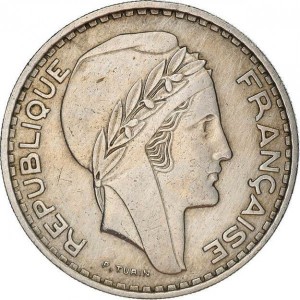Historical Relationship between Algeria and France
The historical relationship between Algeria and France is marked by a complex and often tumultuous past that has significantly shaped their modern interactions. From colonization and resistance to independence and ongoing diplomatic ties, their history is characterized by deep cultural exchanges and conflicts that continue to influence their relationship today. Understanding this history is essential to appreciate the dynamics between the two nations in the present era.
Colonial Era and Conquest
The historical relationship between Algeria and France is deeply rooted in a complex history of colonization and conquest that has significantly shaped their interactions. France’s invasion of Algeria began in 1830, marking the start of a brutal colonial era that lasted for over a century. During this period, Algeria was considered an integral part of the French Empire, and the colonization involved extensive military conquest, cultural impositions, and economic exploitation. The conquest was marked by fierce resistance from Algerian fighters and widespread repression by French colonial forces, resulting in a legacy of conflict and trauma. The colonial rule sought to establish French dominance through land seizures, the suppression of Algerian identity, and the spread of French language and customs. The struggle for independence, which intensified after World War II, eventually led to the Algerian War of Independence (1954-1962), a brutal conflict characterized by guerrilla warfare and severe repression. Algeria’s independence in 1962 marked the end of colonial rule and initiated a new phase in their relationship, shaped by the legacy of colonization, conflict, and a complex process of nation-building and reconciliation.
War of Independence and Liberation Struggle
The historical relationship between Algeria and France is deeply rooted in a complex history marked by colonization, conflict, and the pursuit of independence. France colonized Algeria in 1830, establishing control over the territory and integrating it as an integral part of the French Empire. This occupation led to significant social, economic, and cultural changes, but also fueled resentment and resistance among the Algerian population. The desire for self-determination grew over decades, culminating in a fierce and protracted struggle for liberation.
The War of Independence, also known as the Algerian War, began in 1954 and lasted until 1962. It was a brutal and multifaceted conflict characterized by guerrilla warfare, acts of terrorism, and widespread political violence. The National Liberation Front (FLN) emerged as the main organization fighting for independence, wielding both military and political strategies to challenge French authority. The conflict also involved significant atrocities, suffering, and loss of life on both sides, profoundly shaping the relationship between the two nations.
The liberation struggle reached its peak with major battles and mass protests, ultimately leading to the signing of the Évian Accords in 1962, which granted Algeria independence. This victory marked a decisive turning point, ending nearly 132 years of French colonization and establishing Algeria as a sovereign nation. The aftermath of independence was complex, involving efforts at nation-building, address for the wounds of the war, and redefining relations with France, the former colonizer. Today, the historical relationship remains nuanced, influenced by shared history, migration, and ongoing diplomatic and cultural ties.
Post-Independence Diplomatic Relations
The historical relationship between Algeria and France has been deeply complex, shaped by centuries of colonization, conflict, and interwoven cultural ties. French colonial rule in Algeria began in 1830 and lasted for 132 years, during which time Algeria was considered an integral part of France. This period was marked by significant resistance from Algerians and severe repression, culminating in the brutal Algerian War of Independence from 1954 to 1962. The war was a traumatic and transformative event that led to Algeria’s independence, but also left wounds that still influence their relationship today.
Post-independence, diplomatic relations between Algeria and France have been characterized by a mixture of cooperation and tension. Algeria sought to assert its sovereignty and often criticized French policies, especially regarding the legacy of colonization and the treatment of Algerian immigrants in France. Despite these tensions, the two countries have maintained strong economic, cultural, and political ties, with France being one of Algeria’s main trading partners and a significant destination for Algerian emigrants. Diplomatic interactions often reflect a desire to reconcile historical grievances while navigating contemporary issues such as migration, security, and regional stability.
Political Interactions and Diplomatic Relations
Political interactions and diplomatic relations between Algeria and France have been shaped by a complex history marked by shared experiences, colonial legacy, and evolving cooperation. These relations influence political dialogue, economic exchanges, and cultural connections, reflecting the importance of maintaining a balanced and constructive partnership. Understanding the dynamics of this relationship provides insight into their current interactions and future prospects.
Diplomatic Initiatives and Treaties
Algeria and France have a complex history of political interactions and diplomatic relations that have evolved significantly over the years. Their relationship is marked by moments of tension and cooperation, influenced by historical ties, shared cultural heritage, and contemporary geopolitical interests. Diplomatic initiatives between the two nations often aim to address issues such as reconciliation, economic collaboration, and regional stability.
Numerous treaties and agreements have been signed to foster cooperation in various sectors, including trade, security, and migration. These treaties serve as foundational instruments to manage their bilateral relationship and to resolve conflicts stemming from their colonial past. Recent diplomatic efforts have also focused on addressing historical grievances, strengthening cultural ties, and promoting mutual understanding. Despite occasional disagreements, Algeria and France continue to engage in dialogue to enhance cooperation and build a future based on shared interests and respect.
Influence of Political Leaders
Political interactions and diplomatic relations between Algeria and France have been historically complex, shaped by a shared history marked by colonization, independence, and ongoing efforts to redefine their relationship. The influence of political leaders on these relations is significant, often reflecting domestic politics, national identity, and strategic interests.
- Algerian political leaders have frequently emphasized sovereignty and national pride, seeking to address historical grievances and assert independence in diplomatic engagements.
- French political leaders play a key role in shaping bilateral relations through policies that address migration, economic cooperation, and reconciliation of historical issues.
- High-level visits and diplomatic dialogues are often used by leaders to signal commitments to improving relations or to negotiate contentious issues such as memory, reparations, and cooperation on security matters.
- The influence of public opinion and nationalist sentiments in both countries also guides political leaders’ strategies, often influencing diplomatic initiatives and statements.
- Recent leadership changes in either country can lead to shifts in diplomatic priorities, affecting agreements on trade, cultural exchanges, and political cooperation.
Current Diplomatic Challenges and Opportunities
The diplomatic relationship between Algeria and France is complex, shaped by a shared history, cultural ties, and ongoing political challenges. Both nations face the task of addressing historical grievances, fostering mutual understanding, and promoting cooperation in various sectors amidst evolving global dynamics.
- Historical Reconciliation: Addressing the legacy of colonialism and war of independence remains a central challenge, requiring diplomatic efforts to build trust and acknowledgment.
- Cultural and Economic Exchanges: Enhancing cultural diplomacy and economic relations offers opportunities to deepen cooperation and mutual benefit.
- Migration and Citizenship Issues: Managing migration flows and citizenship rights continues to influence diplomatic interactions, demanding sensitive negotiations.
- Security Concerns: Collaboration on regional security, especially regarding counter-terrorism efforts in North Africa and the Sahel, presents both challenges and avenues for partnership.
- Environmental and Developmental Initiatives: Joint projects on environmental sustainability and economic development could strengthen bilateral ties amidst global climate challenges.
- Advancing Diplomatic Dialogue: Regular high-level talks and diplomatic engagement are crucial to address sensitive issues and explore new avenues of cooperation.
- Building Public Diplomacy: Promoting mutual cultural exchanges and educational programs can improve perceptions and foster closer societal connections.
- Leveraging International Forums: Collaborating within international organizations like the United Nations can help address shared concerns and boost collaborative efforts.
- Responding to Global Challenges: Coordinated responses to global issues such as climate change, pandemic management, and economic instability offer opportunities for joint leadership and influence.
Economic Ties and Trade Relations
The economic ties and trade relations between Algeria and France have a long-standing history shaped by shared past experiences and ongoing cooperation. These bilateral connections are vital for both nations, fostering economic growth, investment opportunities, and regional stability. Understanding the dynamics of their trade relationship provides valuable insights into how their economic interdependence influences broader geopolitical and economic landscapes.
Trade Markets and Main Export/Import Sectors
Algeria and France share a complex and historically significant economic relationship characterized by substantial trade ties, strong trade markets, and interconnected main export and import sectors. This partnership has evolved over decades, influenced by their colonial history, geographic proximity, and economic interests.
The economic ties between Algeria and France are primarily centered around trade exchanges, with France being one of Algeria’s most important trading partners. The trade relations include the exchange of a variety of goods, fostering mutual economic benefits. The trade markets are notably active in several key sectors, which serve as the backbone of their economic exchange.
Main export sectors for Algeria include hydrocarbons such as oil and natural gas, which constitute the majority of the country’s revenues. Algeria primarily exports these resources to France and other European countries. Conversely, France predominantly exports machinery, vehicles, industrial equipment, pharmaceuticals, and consumer goods to Algeria. These imports support Algeria’s infrastructure development and consumer needs while maintaining France’s role as a significant trading partner.
- Oil and natural gas – Algeria’s primary exports to France, vital to both nations’ energy needs.
- Machinery and industrial equipment – France’s main exports, crucial for Algeria’s modernization efforts.
- Vehicles and transportation equipment – A significant sector involving French automobiles and parts in Algeria.
- Pharmaceuticals and medical supplies – France supplies advanced pharmaceutical products to Algeria.
- Food products – Including cereals, dairy, and processed foods imported from France to meet domestic demand.
Overall, the economic relationship between Algeria and France continues to be a vital component of their respective economies, shaped by ongoing trade relations, shared investments, and interdependent sectors that promote mutual growth and development.
French Investment in Algeria
Economic ties and trade relations between Algeria and France are historically significant and continue to play a vital role in the bilateral relationship. France is one of Algeria’s main trading partners, with extensive trade in hydrocarbons, machinery, and agricultural products. The economic connection is also marked by substantial French investments in various sectors within Algeria, including manufacturing, infrastructure, and telecommunications. French companies have historically contributed to Algeria’s economic development while benefiting from the large market and strategic opportunities in the region. These investments foster economic growth, create jobs, and promote technological exchange, strengthening the overall cooperation between the two nations. Despite contextual political differences, economic interests remain a core element of Franco-Algerian relations, highlighting the importance of ongoing trade and investment initiatives for both countries’ prosperity.
Economic Agreements and Collaborations
Algeria and France share a complex and historically significant relationship rooted in economic ties and trade interactions. Over the years, their economic relationship has evolved through various agreements aimed at fostering cooperation and mutual benefit. France is one of Algeria’s main trading partners, with substantial trade in commodities, machinery, and technology. The two countries have engaged in numerous economic agreements designed to promote collaboration in sectors such as energy, infrastructure, and industrial development.
Economic collaborations between Algeria and France are driven by shared interests in enhancing trade flows, attracting investments, and developing joint ventures. Agreements such as bilateral trade pacts and cooperation frameworks facilitate smoother trade relations and investment opportunities. France has also been involved in supporting Algeria’s efforts to diversify its economy beyond hydrocarbons by investing in sectors like manufacturing, agriculture, and services.
Additionally, both nations participate in regional economic initiatives and multilateral collaborations aimed at strengthening economic stability and growth. These collaborations often focus on improving infrastructure, facilitating technology transfer, and establishing favorable trade policies. Overall, their economic ties symbolize a relationship that continues to adapt and deepen through ongoing agreements and collaborative efforts, reflecting shared interests and historical connections that benefit both nations.
Cultural and Social Connections
Algeria and France share a deep and complex cultural and social connection, shaped by a long history of interaction and exchange. These ties are evident in language, traditions, and societal influences that continue to influence both nations today. Exploring these connections reveals a rich tapestry of shared experiences and evolving relationships that have defined their relationship over time.
Language and Educational Exchanges
Algeria and France share a complex history that has fostered deep cultural and social connections between the two nations. These ties are evident in the vibrant Algerian communities thriving within France, which serve as a bridge for cultural exchange and mutual influence. Language plays a crucial role in maintaining these links, with Arabic and Berber maintaining significance in Algeria, while French remains a prominent language in both countries, facilitating communication, trade, and cultural dialogue. Educational exchanges have also flourished, with many Algerian students pursuing higher education in France, benefiting from scholarship programs and academic collaborations. These exchanges not only strengthen individual relationships but also promote a greater understanding of each country’s diverse cultural heritage, fostering ongoing cooperation and shared growth between Algeria and France.
Migration and Diaspora Communities
The cultural and social connections between Algeria and France are deeply rooted in history, shaped by centuries of colonialism, migration, and shared experiences. These ties are reflected in the vibrant Algerian diaspora in France, which has significantly contributed to French society through various sectors including arts, politics, and business. Migration from Algeria to France increased notably during the 20th century, especially after Algeria’s independence in 1962, leading to diverse diaspora communities that maintain strong cultural bonds with their homeland. These communities preserve their language, traditions, and customs while integrating into French society, fostering a unique multicultural environment. The ongoing interactions between Algerian and French communities continue to influence social dynamics, culinary traditions, music, and political discourse, strengthening a complex yet enduring relationship between the two nations.
Negative and Positive Cultural Perceptions
The cultural and social connections between Algeria and France are deeply rooted in history, shaped by years of colonization, migration, and shared experiences. These linkages foster a rich exchange of traditions, languages, and values, contributing to a complex relationship that influences both societies. Positive perceptions often highlight the strong diasporic community, economic ties, and mutual influence in arts, cuisine, and language. However, negative perceptions stem from historical grievances, issues of identity, and lingering colonial resentment, which can lead to misunderstandings and tensions. Recognizing both the positive contributions and the challenges is essential to fostering a respectful and constructive relationship between the two nations.
Security and Defense Cooperation
Security and defense cooperation between Algeria and France has been a complex and evolving relationship shaped by historical ties, strategic interests, and regional stability concerns. Both nations recognize the importance of collaborative efforts to address common security challenges, including terrorism, border security, and military modernization. This partnership plays a significant role in fostering stability in North Africa and the Mediterranean, while also reflecting their shared history and ongoing diplomatic engagement.
Counterterrorism Efforts and Intelligence Sharing
Algeria and France have long maintained a complex relationship centered on security and defense cooperation, particularly in the realms of counterterrorism efforts and intelligence sharing. Both countries recognize the importance of collaborative efforts to combat regional threats such as terrorism, organized crime, and extremist networks that operate across their borders. They have established bilateral mechanisms to facilitate the exchange of intelligence information, enhance operational coordination, and conduct joint training exercises aimed at strengthening their collective security posture.
Counterterrorism cooperation between Algeria and France has been particularly focused on addressing the threats posed by jihadist groups in the Sahel and North Africa. France, as a key actor in regional security, often collaborates with Algerian authorities to share intelligence related to terrorist plots, financing networks, and militant movements. This partnership helps to dismantle terrorist cells and prevent attacks both within the countries and in neighboring regions.
Furthermore, intelligence sharing plays a critical role in enabling both nations to respond swiftly to emerging threats. This cooperation includes the exchange of signals intelligence, surveillance data, and analysis, which enhances the effectiveness of their security responses. While political sensitivities sometimes influence the depth of information shared, both Algeria and France recognize that close cooperation is essential for maintaining stability and addressing common security challenges in the Mediterranean and North African areas.
Military Cooperation and Training
Security and defense cooperation between Algeria and France has been an evolving aspect of their bilateral relations, reflecting shared interests in regional stability and counter-terrorism efforts. Both countries have engaged in various initiatives to enhance military collaboration, intelligence sharing, and strategic dialogues to address common security threats.
Military cooperation has included joint exercises, training exchanges, and personnel visits aimed at improving interoperability and understanding between their armed forces. France, with its extensive military expertise, has provided training programs to Algerian military personnel, covering areas such as counter-terrorism, crisis response, and peacekeeping operations.
Training initiatives have been tailored to bolster Algeria’s own defense capabilities while fostering closer military ties. These efforts have often involved the deployment of French instructors to Algerian military institutions and the organization of multilateral military drills involving regional partners. Such cooperation underscores the importance both nations place on regional security and their desire to maintain stability within North Africa and the Sahel region.

Impact of Security Policies on Bilateral Relations
Security and defense cooperation between Algeria and France significantly influence their bilateral relations, shaping their strategic partnership and regional stability. Both nations have engaged in various security initiatives, including intelligence sharing, joint military exercises, and counter-terrorism efforts, which foster a sense of trust and mutual interest. These security policies are instrumental in addressing threats such as extremism, organized crime, and regional instability, thereby strengthening diplomatic ties.
However, security policies also impact their relationship in complex ways. Historical grievances related to colonialism and recent debates over migration and intelligence agreements have sometimes created tensions. The emphasis on security cooperation can evoke sensitivities, especially when perceived as infringing on sovereignty or affecting domestic policies. Balancing security interests with political, economic, and cultural considerations is crucial in maintaining a productive and nuanced partnership.
Overall, security and defense policies serve as both a foundation and a challenge for Algeria-France relations. Effective collaboration enhances regional stability and demonstrates a shared commitment to addressing common security threats, yet it requires careful management of historical and political sensitivities to sustain a positive bilateral relationship.
Humanitarian and Developmental Aid
Humanitarian and developmental aid play a vital role in fostering stability and growth within regions facing economic or social challenges. In the context of Algeria and France, these efforts often involve collaborations aimed at addressing issues such as poverty, healthcare, education, and migration. Understanding the dynamics of aid between these two nations provides insight into their historical ties and ongoing initiatives to promote mutual development and stability.
Collaborative Development Projects
Humanitarian and developmental aid plays a crucial role in fostering sustainable growth and stability in regions with complex historical relationships, such as Algeria and France. Collaborative development projects between these two nations aim to address social, economic, and environmental challenges, promoting mutual understanding and shared prosperity. These initiatives often focus on improving education, healthcare, infrastructure, and ecological sustainability, leveraging the strengths of both countries to create long-term benefits.
In particular, France has been involved in various development programs in Algeria, supporting efforts to enhance healthcare systems, modernize agriculture, and develop clean energy initiatives. These projects not only contribute to Algeria’s national development goals but also serve to strengthen diplomatic ties and foster cultural exchange. The collaboration underscores the importance of joint efforts in addressing global issues like poverty reduction, climate change, and educational development.
Furthermore, humanitarian aid in this context often involves providing immediate relief in response to crises such as natural disasters or economic hardships, while developmental aid emphasizes building resilient infrastructure and systems to prevent future vulnerabilities. Successful collaboration depends on mutual respect, shared objectives, and transparent partnerships, ensuring that aid effectively contributes to the wellbeing of communities in both countries.
Human Rights and Social Policy Influences
The relationship between Algeria and France has been significantly shaped by humanitarian and developmental aid, human rights considerations, and social policy influences. Historically, France’s colonial rule over Algeria and the subsequent struggle for independence have left a complex legacy that continues to influence diplomatic and social interactions today. Humanitarian aid has played a role in addressing the consequences of colonialism and conflict, aiming to support economic development and social stability in Algeria. Additionally, France has engaged in efforts to promote human rights and reconciliation, especially concerning issues such as the memory of the colonial period and treatment of Algerian immigrants in France. Social policies in both countries are also interconnected, reflecting shared histories and ongoing debates about identity, integration, and justice. These factors together contribute to shaping a multifaceted relationship rooted in historical grievances, shared interests, and the pursuit of mutual growth and understanding.
Support During Crises and Emergencies
Humanitarian and developmental aid plays a crucial role in providing support during crises and emergencies, especially in regions facing instability. In the context of Algeria and France, these efforts are vital in addressing the complex needs of affected populations and fostering stability. France has historically provided humanitarian assistance to Algeria, particularly during times of political unrest, economic hardship, or natural disasters. Similarly, Algeria has engaged in both receiving and contributing to aid initiatives aimed at alleviating suffering and promoting sustainable development. These aid initiatives often encompass medical support, food distribution, shelter, and infrastructure rebuilding, aiming to lessen the impact of crises on vulnerable communities. Collaboration between the two countries, as well as with international organizations, enhances the effectiveness of aid delivery, ensuring that relief efforts are timely and targeted appropriately. Overall, humanitarian and developmental aid serves as a critical tool in strengthening resilience, fostering recovery, and promoting long-term stability in both Algeria and France during times of crisis and emergency.
Environmental and Technological Collaboration
Environmental and technological collaboration between Algeria and France plays a vital role in addressing global challenges such as climate change, sustainable development, and innovation. By sharing expertise, resources, and advanced technology, both countries aim to promote eco-friendly solutions and strengthen their economic and environmental resilience. This partnership fosters a mutual exchange of knowledge that benefits their respective ecosystems and communities, paving the way for a more sustainable future.
Joint Research and Innovation Projects
Environmental and technological collaboration between Algeria and France has become a vital component of their bilateral relations, fostering sustainable development and innovative solutions to shared challenges. Both countries recognize the importance of working together to address issues such as climate change, pollution, and resource management through joint research initiatives. These collaborations often focus on renewable energy projects, water conservation technologies, and sustainable agriculture, leveraging France’s advanced scientific expertise and Algeria’s natural resources.
Joint research and innovation projects have been instrumental in promoting knowledge exchange and technological advancement. Programs encouraging scientific partnerships between universities, research institutions, and private sector companies facilitate the development of innovative solutions tailored to regional needs. France’s support in capacity building and funding has enabled Algeria to develop its technological infrastructure and enhance research capabilities, paving the way for sustainable economic growth.
Such collaborations also extend to the digital realm, where Algeria and France are exploring smart technologies, digital transformation, and environmental monitoring systems. These efforts aim to improve resilience against environmental threats and ensure long-term ecological stability. Strengthening these partnerships not only benefits both nations economically and environmentally but also sets a positive example for regional cooperation in tackling global environmental challenges through joint innovation and research projects.
Environmental Conservation Initiatives
Algeria and France have increasingly prioritized environmental and technological collaboration to address shared ecological challenges and promote sustainable development. This partnership involves joint efforts in areas such as renewable energy, water management, and pollution control, leveraging each country’s technological expertise and resources. Environmental conservation initiatives between the two nations are aimed at protecting biodiversity, restoring degraded ecosystems, and mitigating climate change impacts through cooperative projects and knowledge exchange.
Through bilateral agreements and research collaborations, Algeria and France work together to advance innovative solutions for environmental preservation. France’s experience in renewable energy development and Algeria’s diverse natural landscapes create opportunities for sustainable projects that benefit both nations. These initiatives not only contribute to environmental protection but also foster economic growth, regional stability, and a shared commitment to a greener future.
Total Sustainable Development Goals Alignment
Environmental and technological collaboration between Algeria and France plays a vital role in achieving overall sustainable development goals. Both nations can leverage their respective strengths to address common challenges such as climate change, resource management, and renewable energy transition. By sharing innovative technologies and best practices, they can foster sustainable industrial growth, improve environmental conservation efforts, and promote responsible usage of natural resources. This partnership aligns with the global agenda of the Sustainable Development Goals, particularly those related to clean energy, climate action, and sustainable cities and communities. Strengthening bilateral cooperation ensures that development is environmentally sound, socially inclusive, and economically viable, contributing to a resilient and sustainable future for both countries.





0 Comments